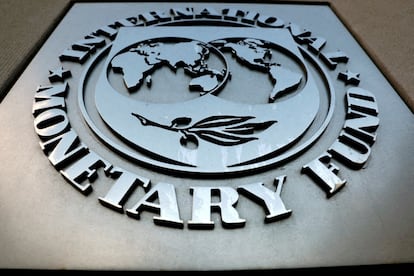International Monetary Fund warns Europe against prematurely declaring victory over inflation
Cost of underestimating inflation’s persistence could be painfully high and result in another round of rate hikes that could rob the economy of a large chunk of growth, says the IMF

The European Central Bank and other policymakers across Europe need to keep interest rates at current elevated levels until they’re sure inflation is under control despite sluggish growth, the International Monetary Fund said Wednesday, warning against “premature celebration” as inflation declines from its peak.
The Washington-based IMF said that cost of underestimating inflation’s persistence could be painfully high and result in another painful round of rate hikes that could rob the economy of a large chunk of growth.
The European Central Bank, the Bank of England and the other central banks that aren’t part of the 20-country eurozone “are reaching the peak of their interest rate cycles, while some have started to reduce policy rates,” the IMF said in its twice-yearly regional economic outlook for Europe. “Nonetheless, a prolonged restrictive stance is still necessary to ensure that inflation moves back to target.”
Historically, it takes an average of three years to return inflation to lower levels, while some anti-inflation campaigns have taken even longer, the IMF said. While central banks appear to have ended their series of hikes, a failure to finish the job and the resulting return to rate hikes could cost as much as a full percentage point of annual economic output.
Alfred Kammer, director of the IMF’s Europe department, warned against “premature celebration” as he spoke to journalists in connection with the outlook. “It is less costly to be too tight than too loose” with interest-rate policy, Kammer said. The ECB, which halted its rate increases at its Oct. 26 for the first time in over a year, “is in a good spot,” he said. Inflation in the eurozone peaked at 10.6% in October 2022, and has steadily fallen to 2.9% in October.
The European Central Bank has raised its benchmark deposit rate by fully 4.5 percentage points between July 2022 and September 2023, from minus 0.5% to 4%. Higher rates are the typical tool central banks use to control inflation, since higher rates mean higher borrowing costs for consumer purchases and financing new officials and factory equipment. That reduces demand for goods and eases pressure on prices, but can also hurt growth - a difficult tightrope act for the ECB. The Bank of England left its benchmark rate unchanged at 5.25% at a policy meeting last week.
The IMF said Europe was headed for a “soft landing” after the impact of the rate hikes and did not foresee a recession, while growth forecasts remained uncertain and could turn out better or worse than expected.
It forecast growth for the region - including the UK and Switzerland as well as the 27-country European Union - of 1.3% this year and 1.5% next year. For the eurozone, the outlook is for 0.7% growth for this year and 1.2% next year. If inflation falls faster than expected, it will boost consumer real income and spending and growth might improve. But an escalation of Russia’s war against Ukraine and accompanying increased sanctions and disruptions to trade could mean weaker growth.
For now, the monthlong war between Israel and Hamas in Gaza has led to a temporary rise in oil prices but has not disrupted the European economy, Kammer said.
Sign up for our weekly newsletter to get more English-language news coverage from EL PAÍS USA Edition
Tu suscripción se está usando en otro dispositivo
¿Quieres añadir otro usuario a tu suscripción?
Si continúas leyendo en este dispositivo, no se podrá leer en el otro.
FlechaTu suscripción se está usando en otro dispositivo y solo puedes acceder a EL PAÍS desde un dispositivo a la vez.
Si quieres compartir tu cuenta, cambia tu suscripción a la modalidad Premium, así podrás añadir otro usuario. Cada uno accederá con su propia cuenta de email, lo que os permitirá personalizar vuestra experiencia en EL PAÍS.
¿Tienes una suscripción de empresa? Accede aquí para contratar más cuentas.
En el caso de no saber quién está usando tu cuenta, te recomendamos cambiar tu contraseña aquí.
Si decides continuar compartiendo tu cuenta, este mensaje se mostrará en tu dispositivo y en el de la otra persona que está usando tu cuenta de forma indefinida, afectando a tu experiencia de lectura. Puedes consultar aquí los términos y condiciones de la suscripción digital.








































